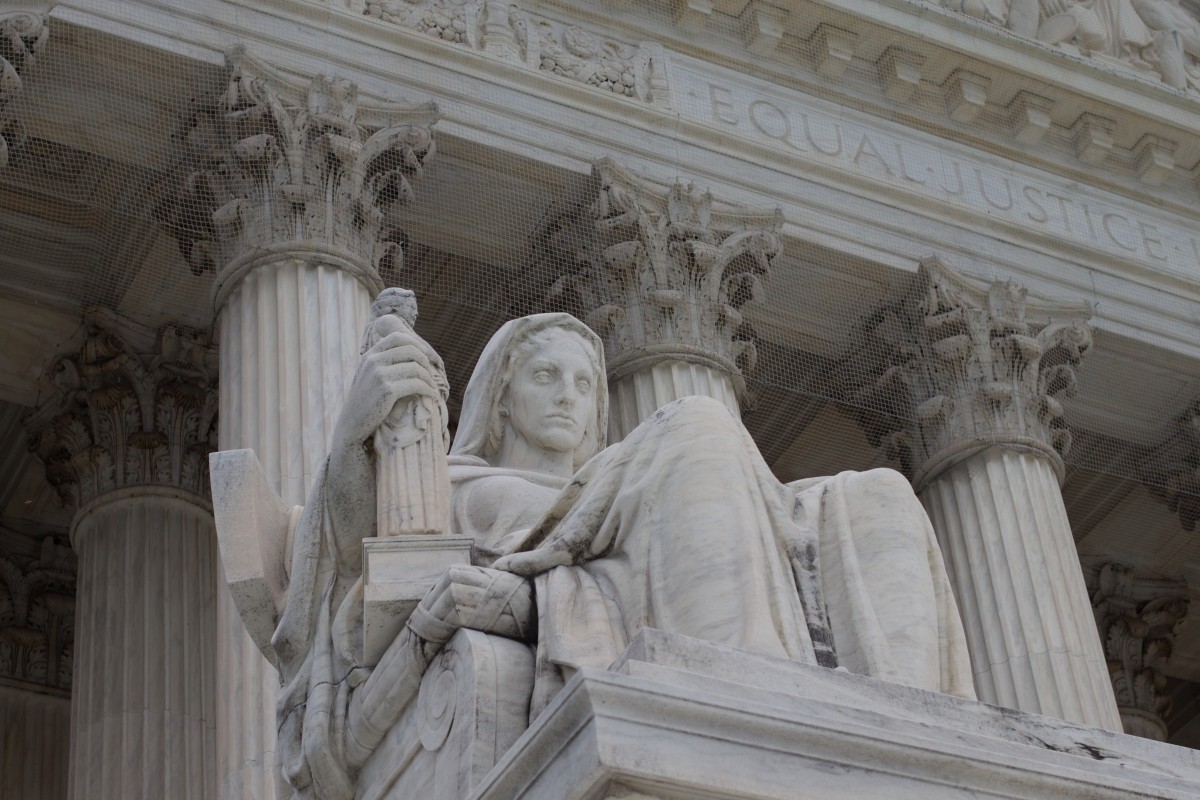A narrow majority on the U.S. Supreme Court indicated a preference for “first class” information over “economy class” information in a recent ruling, using a metaphor that strikes close to home.
No, this is not really a travel-related post. Those who are aware of my legal background may know that I am a close watcher of the Supreme Court and follow its entire docket closely. Every article from Supreme Court reporters like Adam Liptak of the New York Times or David Savage of the Los Angeles Times is required reading for me and I closely follow the SCOTUSblog.
Well, it’s not often that I get to address the Supreme Court on Live and Let’s Fly, but I’ll do so here…on a copyright case.
Earlier this week, the Supreme Court narrowly held in Georgia v Public.Resource.Org that under the government edicts doctrine, the annotations beneath the statutory provisions in the Official Code of Georgia Annotated are ineligible for copyright protection.
Uh, what…?
Put simply, states cannot copyright commentary on laws, even if prepared at a high cost, if they commission the work. To put that in context, Georgia made statutory texts and caselaw available for free, but if you wanted access to commentary on the these measures, including whether the law or court holding was still valid, you had to pay services like LexisNexis or travel to a legal library to consult a physical book. The majority, split along unusual ideological lines, held that “whatever work that judge or legislator produces in the course of his judicial or legislative duties is not copyrightable.” More analysis here on the case, if you are interested.
A metaphor in Chief Justice Robert’s majority opinion caught my attention:
“…Imagine a Georgia citizen in- terested in learning his legal rights and duties. If he reads the economy-class version of the Georgia Code available online, he will see laws requiring political candidates to pay hefty qualification fees (with no indigency exception), criminalizing broad categories of consensual sexual conduct, and exempting certain key evidence in criminal trials from standard evidentiary limitations—with no hint that important aspects of those laws have been held unconstitutional by the Georgia Supreme Court….
“Meanwhile, first-class readers with access to the annotations will be assured that these laws are, in crucial respects, unenforceable relics that the legislature has not bothered to narrow or repeal…”
(bolding mine)
I like the metaphor and on a personal note, applaud the decision because it encourages transparency and access to information.
CONCLUSION
Perhaps metaphors about first class versus economy class are better than the SCOTUS actually delving into frequent flyer issues. But it did make the decision all the more relatable…
> Read More: A Meaningless Supreme Court Decision on Frequent Flyer Miles





This is a first class blog!
Further explanation, please!
ROBERTS, SOTOMAYOR, KAGAN, GORSUCH, and KAVANAUGH
versus
THOMAS, ALITO, BREYER
GINSBURG
So conservatives and liberal want equal access to annotated version of the law but 2 conservatives and 2 liberals are elitist and only want paying snobs to have access to all of the annotations????
In most of Continental Europe, everything produced by the government (and public authorities more generally) is public domain by definition, and there are also, in many places, open-government initiatives which collate this data in useful ways.
To me this parallel with Economy/First-class information only underscores how inappropriate a profit-based approach is when talking about basic government functions (in this case the law).
And thank you for this judicial note from a fellow lawyer!
Can a result that has Ginsburg and Breyer dissenting along with Thomas and Alito really be described as a decision “split along unusual ideological lines”?
Unusual? Yes.
Thanks for covering this Matthew! I remember my time in law school in Georgia when LexisNexis and Westlaw were free. It was so easy to look up the comments on the OCGA and case law. The harsh reality about the cost hit after the bar exam. 🙂
Any chance for a post about what Northwest v Ginsberg means in 2020? Given that SCOTUS’s decision had a note about non-airline point earning.
Let me think about it – you’re right that the landscape is different in 2020.
Cool story. I would also like more analysis of how the Court split up in the end…